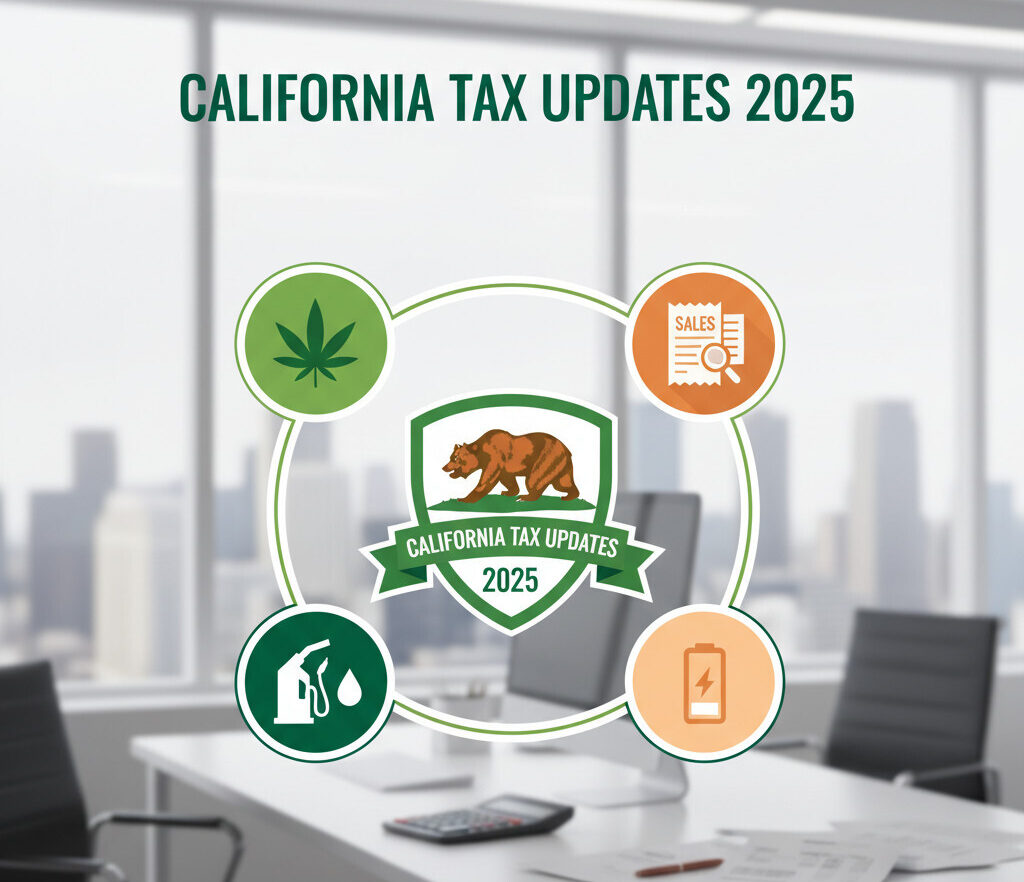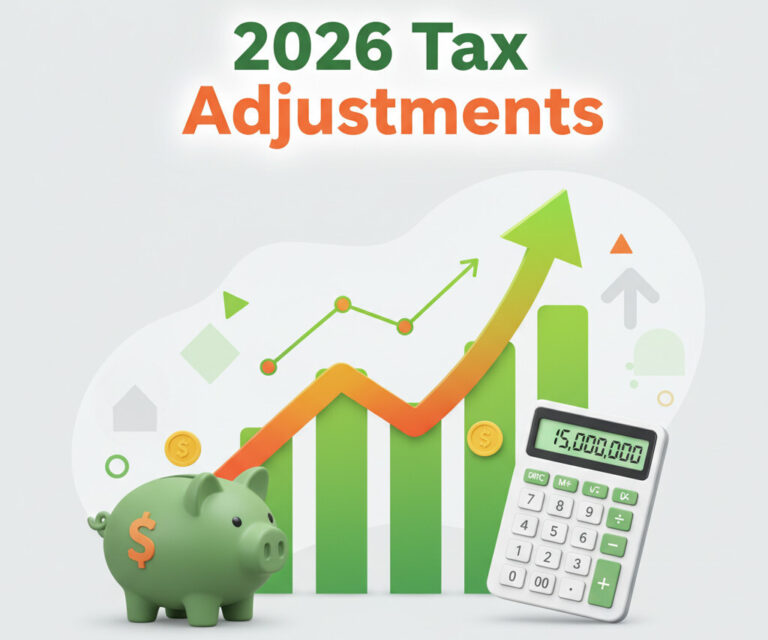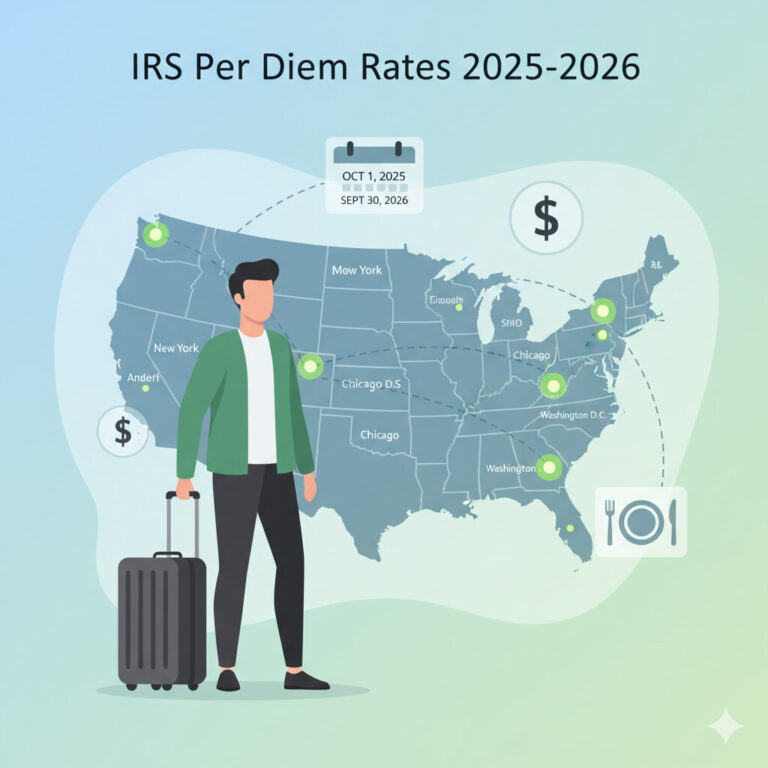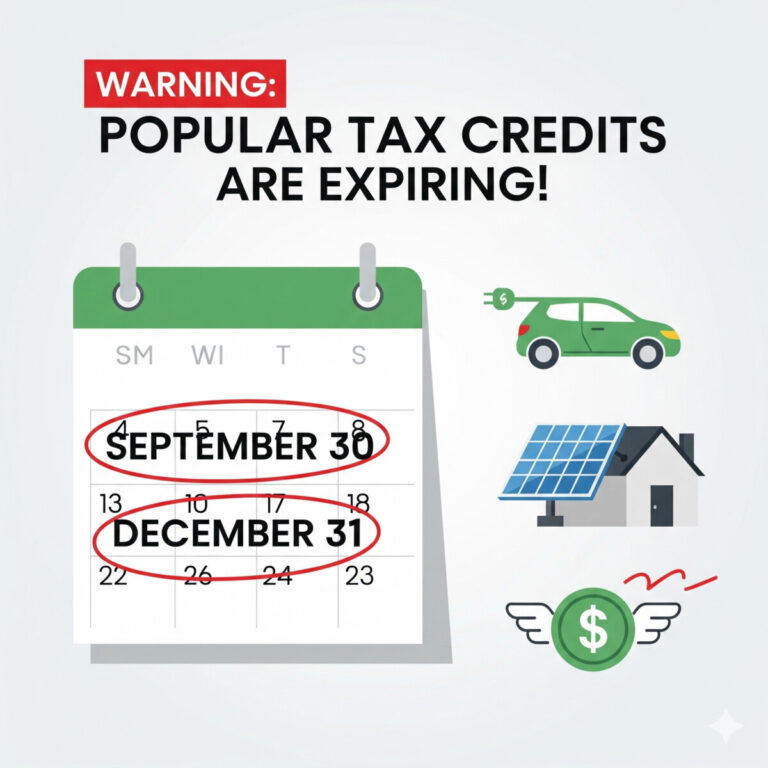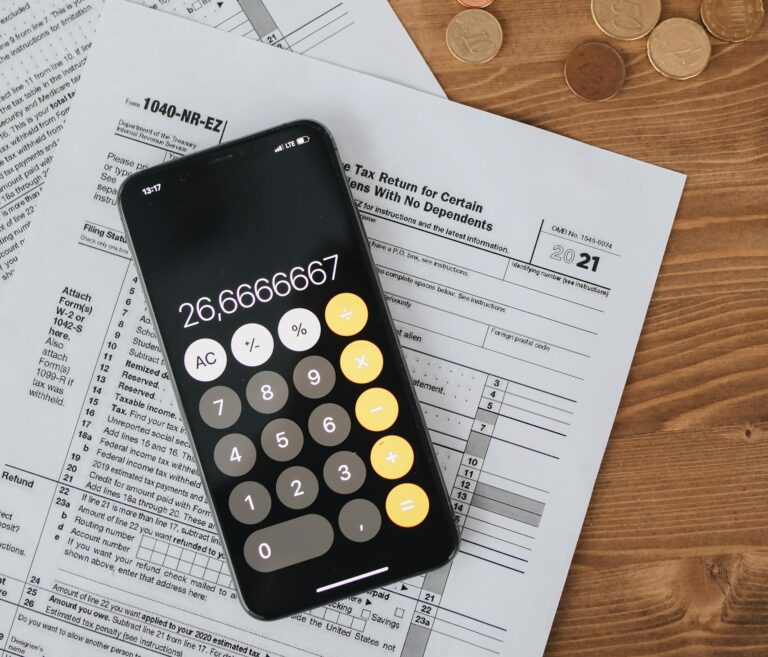CDTFA Tax Changes: Your Guide to New Cannabis, Sales, and Fuel Tax Rates
Keeping up with tax changes can feel like a full-time job, right? Just when you think you’ve got everything figured out, new rules and rates pop up. If you’re a business owner in California, you know this feeling all too well. But don’t worry, we’ve got your back! We’ve dived deep into the latest Tax Information Bulletin from the California Department of Tax and Fee Administration (CDTFA) to bring you a clear, simple breakdown of the changes coming in late 2025 and early 2026. Let’s get you up to speed so you can stay compliant and focus on what you do best. 😊
Key Tax Rate Changes Effective October 1, 2025 🤔
October 1, 2025, is a big day for tax rate adjustments in California. Several key industries will see changes, so it’s crucial to be prepared. Let’s take a look at the most significant updates impacting cannabis retailers, firearm dealers, and businesses in specific districts.
Cannabis Excise Tax Reduction
Great news for the cannabis industry! The cannabis excise tax imposed on purchasers is getting a significant cut. Effective October 1, 2025, the rate will decrease from 19 percent to 15 percent. This change applies to all retail sales of cannabis and cannabis products occurring on or after this date. The previous 19 percent rate was in effect from July 1, 2025, through September 30, 2025.
This rate change is intended to support licensed cannabis businesses and make them more competitive. Ensure your point-of-sale system is updated to reflect the new 15% excise tax rate starting October 1, 2025, to avoid overcharging customers or creating reporting headaches.
New District Sales and Use Tax Rates
If you conduct business in the cities of Dos Palos, Oakland, or Sebastopol, you’ll need to adjust your sales and use tax collections. The following new rates also take effect on October 1, 2025.
| City | County | Current Rate | New Rate |
|---|---|---|---|
| City of Dos Palos | Merced | 7.750% | 8.250% |
| City of Oakland | Alameda | 10.250% | 10.750% |
| City of Sebastopol | Sonoma | 10.250% | 10.500% |
California Firearm and Ammunition Excise Tax (CFET) Responsibility
There’s a clarification on who is responsible for paying the California Firearm, Firearm Precursor Part, and Ammunition Excise Tax (CFET) when a California Firearms Dealer (CFD) handles the transfer paperwork for an out-of-state retailer. The rules vary depending on whether the out-of-state retailer is “doing business” in California.
| Transaction Type | Applicable Tax | Party Responsible for Tax |
|---|---|---|
| A CFD facilitates a transfer for an out-of-state retailer doing business in CA. | CFET Use Tax |
CFD Out-of-State Retailer |
| A CFD facilitates a transfer for an out-of-state retailer or private party NOT doing business in CA. | CFET Sales Tax |
CFD |
Fuel, Vehicle, and Environmental Fee Updates 📊
It’s not just retail goods seeing changes. The CDTFA has also announced updates for fuel taxes, vehicle dealer reporting, and a brand-new recycling fee on the horizon.
IFTA and Interstate Diesel Fuel Tax Rate Decrease
For those in the transportation industry, the tax rate for diesel fuel under the International Fuel Tax Agreement (IFTA) has decreased. For the period of July 1, 2025, through June 30, 2026, the total rate has dropped from $1.023 to $0.971 per gallon. This is the rate licensees report on their quarterly returns for diesel fuel used inside and outside California.
IFTA, Inc. has added electricity, hydrogen, and hythane as reportable fuel types. If you operate qualified zero-emission vehicles that use these fuels for interstate travel, they should be registered for an IFTA license, and all miles and fuel must be reported on your IFTA returns.
New Covered Battery-Embedded (CBE) Waste Recycling Fee
This is a big one for retailers of electronics. Beginning January 1, 2026, a new CBE waste recycling fee will be imposed on consumers when they purchase or lease new or refurbished products with embedded batteries. A CBE product is one where the battery is not designed to be easily removed by the user (think smartphones or laptops).
- Who collects it? Retailers who sell or lease these products.
- What do you need to do? You must register with the CDTFA for a CBE waste recycling fee account. Registration will open in late November 2025.
- What’s the rate? CalRecycle will establish the fee rate by October 1, 2025.
Certain items like specific medical devices and covered electronic devices already subject to the eWaste fee are exempt.
Filing Changes for Used Motor Vehicle Dealers
Effective for sales on or after July 1, 2025, the process for reporting taxes is changing for used vehicle dealers. When a dealer submits a registration or transfer application to the DMV, it will now be considered a tax return filed with the CDTFA for the vehicle sales amounts reported. This means dealers will no longer include those specific vehicle sales on their regular sales and use tax returns. However, you must still file a return with CDTFA to report other items, such as non-vehicle taxable charges (like document fees) or out-of-state sales.
Program Deadlines and Other Updates 🧮
Finally, let’s cover a couple of important program deadlines and administrative changes that might affect your business operations.
Cannabis Vendor Compensation Program Ends
The cannabis vendor compensation program, which allowed some cannabis retailers to retain a portion of the excise tax they collected, is set to expire. The program officially ends on December 31, 2025. Currently, there is no legislation to extend it, so plan for this change in your cash flow management for 2026.
For those who file distilled spirits tax returns, your September 2025 return (due October 15, 2025) has changed. If you file supplemental schedules online, you must now round each transaction to the nearest one-hundredth of a gallon (e.g., 1.23 gallons).
Key California Tax Updates
Conclusion: Staying Ahead of the Curve 📝
Whew, that’s a lot to take in! The key takeaway is to be proactive. Review how these changes—especially the new tax rates and the upcoming battery fee—will impact your specific business. Update your systems, inform your team, and adjust your financial planning accordingly. Staying informed is the best way to ensure smooth operations and avoid any unwelcome surprises from the CDTFA.
If you have any questions about how these changes might affect you, feel free to ask in the comments below, and we’ll do our best to point you in the right direction! 😊

